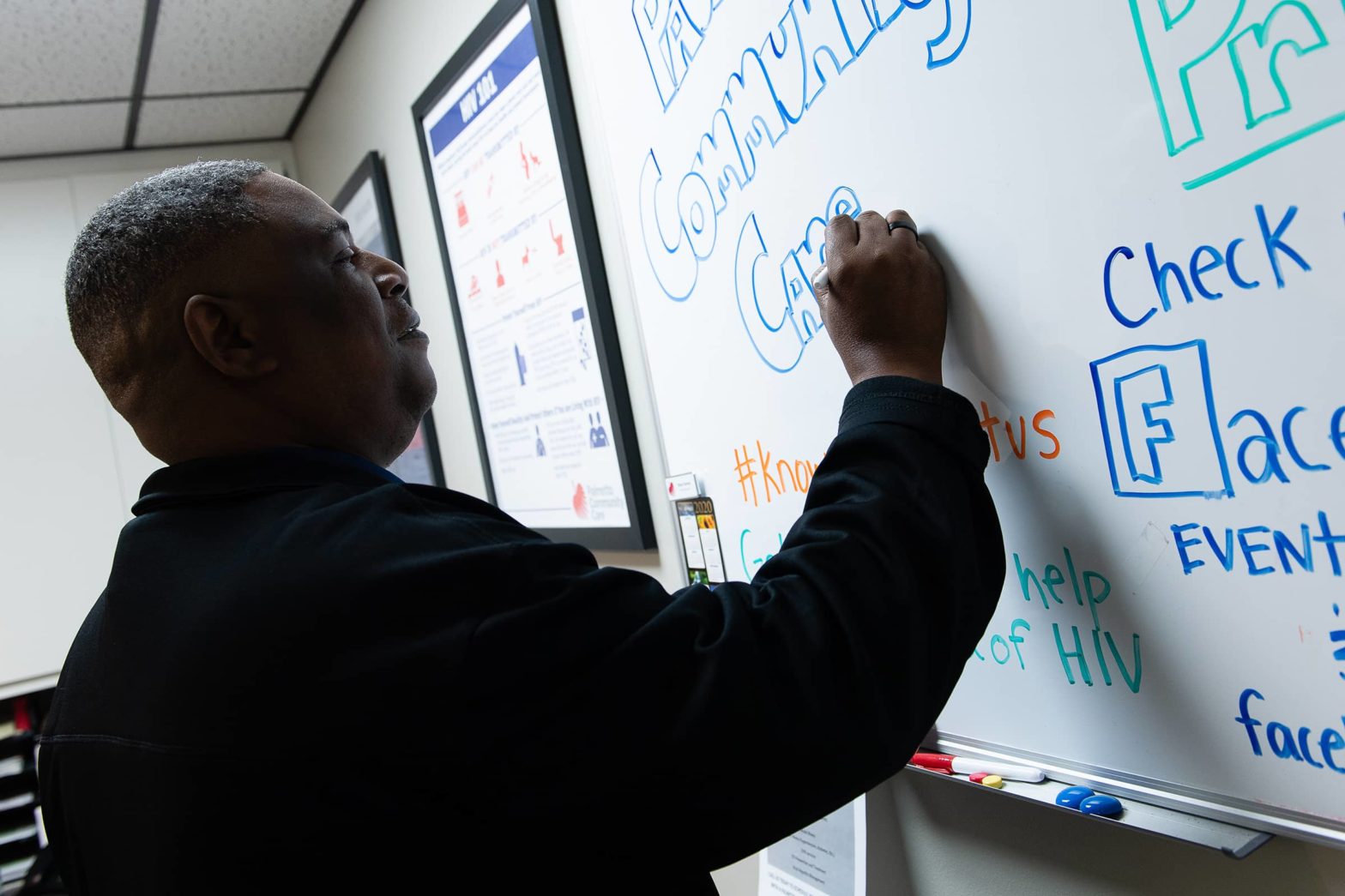If current trends continue, about 1 in 2 black men who have sex with men (MSM) in the United States will be diagnosed with HIV during their lifetime. That sobering statistic, from researchers at the Centers for Disease Control and Prevention, illustrates risk factors are not equal.
This statistic applies to South Carolina and Charleston too. At Palmetto Community Care, we see young black MSMs testing positive for HIV in larger numbers. Thus, we emphasize reaching this particular group of people. Are you sexually active. We recommend regular HIV tests. We encourage anyone – regardless of age, race, gender or socioeconomic background – to come into our office for a free, confidential HIV test. While we spread the message of HIV testing for everyone, we do target some of our outreach efforts.
You may have seen promotions and giveaways aimed at African-American MSMs and wondered, “Why that group?” One of our key focus areas is education. We’re happy to talk about why certain groups are at risk and what we’re doing to reduce that “1 in 2” statistic.
Agency Funding Tied to Outreach for High-Risk Populations
As a nonprofit organization, we receive funding from private donors, fundraisers, corporate sponsors and government agencies. Some of our funding comes from the S.C. Department of Health & Environmental Control. Part of that funding is tied to certain metrics. We are tasked with goals for testing high-risk populations like African-American MSMs. It’s important we meet those goals and receive the state funding. Those dollars enable us to offer free HIV testing to the entire community as well as conduct special testing and education events all over the region.
A Perfect Storm of Oppression
Young black men, particularly young black men who have sex with men, face many obstacles as a result of their identity. As minorities, they face racial oppression. As individuals who engage in same-sex relationships, many experience homophobia. Consider also the strain of those who come from low-income households as an added layer of oppression, and one begins to understand the magnitude of all these young men may be facing on a daily basis.
Oppression and obstacles facing these young men is particularly great here in the South. A June 2017 article in The New York Times Magazine highlighted the staggering rate of HIV infection in Southern states, noting the “South is home to 21 of the 25 metropolitan areas with the highest HIV prevalence among gay and bisexual men.”
Most schools have limited sex education and don’t address what it means to be LGBTQ or how to engage in safe sex practices. While all students in South Carolina have limited access to this kind of education, LGBTQ individuals are at an even bigger disadvantage.
In many ways, this is a vicious cycle and only through education and conversation will we begin to break the patterns.
Many Men Many Voices
Palmetto Community Care has a program specifically targeting HIV-negative young African-American MSMs called Many Men Many Voices or 3MV. This is a free program where men can openly ask questions and discuss HIV prevention in a safe, confidential setting. Participants also receive a $50 gift card and lunch. Sign up for this free program by contacting Jarmel via email or our contact form.
Gay men are infected at rates higher than straight men. Black men are infected at rates higher than white men. So, identifying as a black gay man puts one at an even higher risk of infection. Identifying with multiple marginalized communities increases the obstacles these young men face. They have to manage the oppression attached to each layer of their identity.


